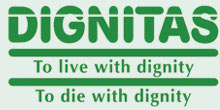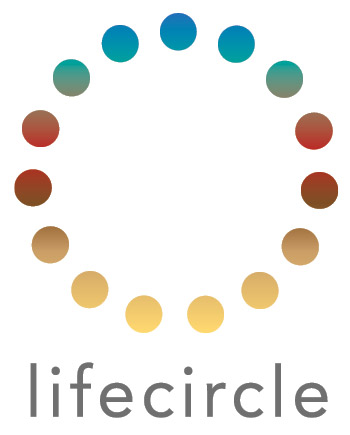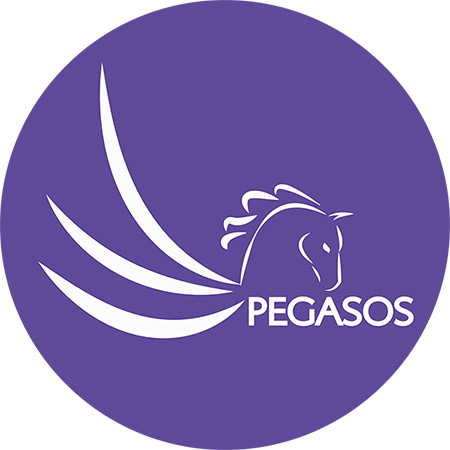 The end-of-life Centres
Eligibility Criteria
The end-of-life Centres
Eligibility Criteria
“These are not criteria plucked out of the blue by the centres themselves. They are necessary to comply with Swiss Law and the guidelines of the Swiss Professional Institutions”
The end-of-life centres do not really have their own criteria, as such. They must, however, operate within the laws and guidelines of the various Swiss authorities and they are obviously keen to do so.
The Swiss law itself is quite straightforward.
Anyone of eighteen and above who is of sound mind can elect to end their lives by means of self-administered assisted suicide. This very simple statement, however, has been decorated by Statutory Rules issued by the Swiss Medical Association.
In order to ensure safety for all parties involved in preparing and conducting a physician-supported assisted suicide in Switzerland, the centres must, in the words of Dignitas:
“ask ourselves five questions – how does this case look from the viewpoint of:
a. the member and patient
b. the medical doctor
c. the family
d. the State Attorney and
e. our own staff.”
It is against that background that potential applicants for assisted suicide are considered and upon which the centres apply their own criteria.
Membership is open to anyone aged over 18. In exceptional circumstances it is also open at Dignitas to competent younger people. Your location and nationality do not matter – though it is important to emphasise that, when the time for assisted dying arrives, you must visit the centre and not expect them to visit you !
All the centres operate on a not-for-profit basis although their costs and fees (see later) are understandably very high. Each one is motivated by a genuine altruistic purpose. This is predominantly the shared belief that all individuals with mental capacity should have the right to choose the time, manner and place of their own death. It is accompanied by a strong desire to avoid unguided do-it-yourself suicide or the catastrophe that can happen when an attempted suicide goes badly wrong.
Under the umbrella of these shared principles, there are a few differences between the centres’ precise criteria for an assisted suicide. The differences are frequently rather subtle and often appear a bit detailed. They are, however, important nonetheless and people should be careful about which choice they make.

DIGNITAS
“Anyone suffering from an illness which will lead inevitably to death, or anyone with an unendurable disability, who wants voluntarily to put an end to their life and suffering can, as a member of DIGNITAS, request the Association to help them with accompanied suicide”
That, taken from the Dignitas brochure, is commendably crisp and clear. Note that there is no mention of “death within six months”. The Dignitas wording was, in fact, chosen by Kevin Hollinrake MP in 2018 for his proposed Private Members Bill to decriminalise relatives travelling to Switzerland with an intended member of any of the centres.
In order to comply fully with Swiss law, the brochure goes on to amplify the prerequisites as :
- a disease which will lead to death (terminal illness), and/or
- an unendurable incapacitating disability, and/or
- unbearable and uncontrollable pain.
This definition appears to leave open the question of mental illness. The Dignitas clarification of that question is :
“Contrary to a widely-held opinion, people suffering from mental health problems normally have sufficient capacity of discernment to decide whether they would like to continue living or end their life. Therefore, and as a general rule, they are entitled to ask for an accompanied suicide and receive assistance just as much as people suffering from physical health problems, in order to avoid the high risk of failure. The same applies to healthy people who wish to end their life because they feel that it has become too arduous for them due to old age. There are no rational reasons to patronise these people through paternalism”.
At a formal level, the number of people who “fail” the assessment by Dignitas and its co-operating physicians appears to be very small – fewer than 10% in 2021. However, that is because of the thorough advice and guidance available from Dignitas itself, substantially through its website, prior to an application being made. Few people go through the detail of making an application if they believe they are not going to succeed. Essentially, a middle-aged person who is simply going through a bad patch in their lives for emotional or financial reasons is unlikely to be successful.
In addition to the criteria mentioned above, an applicant for a physician-supported assisted suicide must also be over eighteen, a member of Dignitas, of “sound judgement” and also “possesses a minimum level of physical mobility (sufficient to administer the drug)”. This latter point is emphasised with the words:
“In every case, for legal reasons, the patient must be able to undertake the last act – that is to swallow, to administer via the gastric tube or to open the valve of the intravenous access tube himself or herself. If this is not possible DIGNITAS is unfortunately unable to help.”
A patient will also need a minimal level of communication ability, sufficient to indicate that he or she is aware of the proposed course of action and is in agreement with it.

LIFECIRCLE
“There are diseases which are not curable with all medical procedures and which sometimes cannot be stopped in their progression. People who suffer from such an illness, can be severely disabled and in need of nursing care over a long period of time. In this situation, some people do not want to continue to bear their fate because they see no sense in a life in complete dependence and without their own activity. Some people feel the need to be nursed as not dignified, they do not want to be wrapped and washed like an infant. Some diseases cause pains that can be made bearable only with such high doses of morphine or sedatives that the patient is unconscious. Those who do not accept to be nursed without hope of improvement may be eligible for Assisted Voluntary Death (AVD)”.
This seems strikingly different in tone to the wording used by Dignitas. Its meaning is similar but it leaves the Lifecircle staff with a wider area of discretion and judgement than is the case with Dignitas. It also emphasises their more human, more personal, approach to each case.
That is probably why Gill Pharaoh, mentioned in the opening sentence of this book, chose Lifecircle rather than anywhere else.
Lifecircle is a sister association of the Eternal SPIRIT Foundation, a Swiss-based organisation committed to promoting the quality of life. “Quality of life stands above duration of life” is the basis of its belief. This means that an AVD is only offered when Lifecircle has been persuaded that the quality of a patient’s life really has fallen so far that full enjoyment of life itself can no longer be possible.
It is striking also that Lifecircle draws a clear distinction between “Assisted Voluntary Death” on the one hand and “Assisted Suicide” on the other. To most British people this sounds like a very odd, even semantic, distinction to make. The reason is that the word “suicide” itself indicates something which still has connotations of criminality and which, in most religions, is also regarded as a sin.
“Lifecircle affirms life and therefore offers no assisted suicide”
says the Lifecircle brochure, before going on to describe precisely how they can help with an assisted voluntary death. Confused ? Well, Lifecircle itself may be in the process of changing. The rest of the world uses “assisted suicide” as its normal terminology and there is a chance that Lifecircle will shortly follow suit.
Lifecircle is helpfully clear about the conditions for which it is willing to offer an AVD. Conditions such as dementia, multiple sclerosis, motor neurone disease and quadriplegia are specifically mentioned as being eligible for AVD.
Lifecircle is also very keen to promote its Living Will. This is a simple document in which a member can register their views on life and the basic considerations that would be in their mind if their anxieties or physical conditions deteriorated. In the UK we would refer to such a document as an Advance Decision or Advance Directive to refuse treatment.

PEGASOS
“Pegasos believes that it is the human right of every rational adult of sound mind, regardless of state of health, to choose the manner and the timing of their death.”
So this is the most all-encompassing of the lot. It does, however, beg a number of questions. Some, not all, of these are answered on the Pegasos website.
Does your family need to know?
Pegasos says it is
“… strongly of the opinion that you should inform your family at some point, even if you know that they will not be supportive.”
Does Pegasos help “well” people to die?
“Pegasos believes that for a person to be in the headspace of considering ending their lives, their quality of life must be qualitatively poor. Pegasos accepts that some people who are not technically ‘sick’ may want to apply for a Voluntary Assisted Death, But this does not mean the person is ‘well’. Professor David Goodall* was one of these people. He was not sick but his eyesight was failing him, as was his mobility. Old age is rarely kind. The decision to end one’s life is an intensely personal one. Pegasos makes every effort to understand fully the unique circumstances of everyone who makes contact with us.”
* It was David Goodall who inspired the founding of Pegasos in 2019. He flew from Australia to receive a voluntary assisted death from Lifecircle, with Ruedi Habegger handling his case. He was 103 and not suffering from any ailments, other than those that should normally be expected in a 103-year-old.
With such a wide net of eligibility, it is worth asking what kind of patient might not be accepted. Imagine, for example, a family man in his fifties. He is reasonably fit but is suicidal because he can see no way out of his financial difficulties. Would Pegasos accept an application from him ? It is difficult to see that they would be right to say Yes. Presumably his family would prefer him to be bankrupt but alive, with some remaining earning-power ? Better that than dead having left an insolvent estate. A man taking his own life in those circumstances is, on the face of things, simply abdicating his responsibilities. Would Pegasos really want to be a party to such selfishness ?
This point was covered in some detail during a talk with Ruedi Habegger from Pegasos in June 2022. Details are in the “visit to Pegasos” section of this guide. In summary, the Pegasos decision upon a case such as the above would depend very heavily upon the applicant’s age, upon the length of time that the problem had existed and upon the prospect for getting over it in the future. In the specific case above, the answer would be No.
SUMMARY SO FAR
At this point, based on the stated criteria alone, the conclusion seems pretty clear. If you are suffering from a well-understood illness such as cancer or MND which is going to prove fatal or if is causing great pain or is “unendurable” then your choice might well be Dignitas. Their experience, thoroughness and dedication to a systematic process mean that you can put your trust in their ability to get the outcome you want.
However, if your illness may not be fatal or if there are other, more subtle, reasons why you want to end your life then your choice is likely to be between Lifecircle and Pegasos.
Many people who choose Lifecircle, in particular, do so because they prefer to deliver the fatal dose by means of a cannula in a vein rather than an unpleasant-tasting drink in the mouth. The effectiveness is also faster by cannula.
On the face of things, you may not even need to be clinically ill at all to seek the services of Pegasos. However, your reasons must have taken into account your responsibilities to others and must have a strong and permanent strand of logic behind them.
As you might suspect, the choice is not quite that simple. Please read the summaries of our visits to the three centres before making any decision.
Read Next Section >


